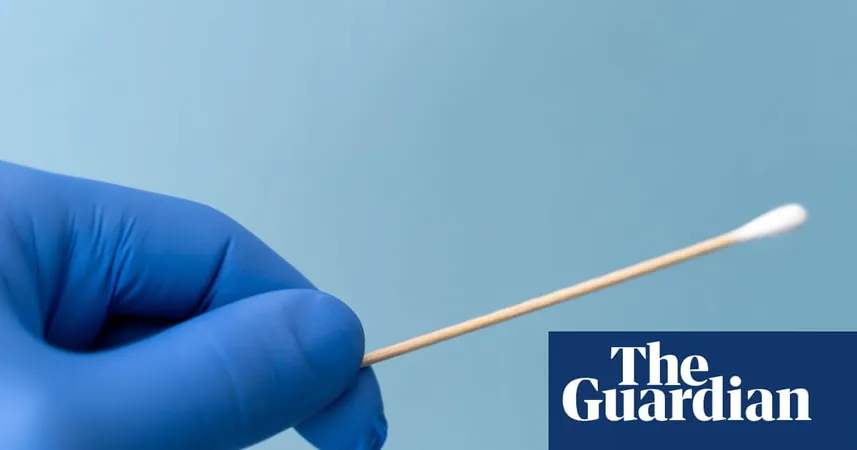
Unlocking the Mystery: A Gene Link Between Humans and Neanderthals Could Explain Their Disappearance!
2025-08-18
Author: Jacques
A Revolutionary Discovery in DNA Synthesis!
A groundbreaking study has revealed that a crucial protein involved in DNA synthesis differs between modern humans and our extinct relatives, the Neanderthals and Denisovans. Research using genetically modified mice has indicated that this genetic variation could illuminate the behavioral advantages that helped modern humans survive while these close relatives vanished.
The Key Protein: ADSL and Its Impact on Behavior
The focus of this research is on an enzyme called adenylosuccinate lyase (ADSL), which plays a vital role in synthesizing purine, a fundamental component of DNA. Strikingly, the human version of ADSL has a single amino acid difference from that of Neanderthals and Denisovans—valine in modern humans versus alanine in our extinct cousins.
This mutation is believed to have emerged after modern humans diverged from the lineage leading to Neanderthals and Denisovans, approximately 600,000 years ago. The implications of this difference are still being unraveled.
Behavioral Insights from Mouse Models
Published in the prestigious journal PNAS, the study demonstrates that the modern variant of ADSL may influence behavior significantly. Mice engineered to express the human ADSL variant performed better in learning tasks involving rewards, indicating enhanced problem-solving skills. Specifically, female mice showed a competitive edge in connecting cues like sounds and lights to obtaining water.
Gender Differences: Why Only Female Mice?
Curiously, this performance boost was not observed in male mice, leaving researchers puzzled about the underlying reasons for this gender disparity in cognitive advantage. As one co-author noted, "Behavior is complex," highlighting the intricacies of genetic influences on behavior.
The Evolutionary Advantage: ADSL Mutations on the Rise!
Statistical analyses have suggested that ADSL mutations appear more frequently in modern human genomes than would be expected by chance, implying potential evolutionary benefits. However, these advantages might come with trade-offs, as previous studies connected ADSL deficiencies in modern humans to various intellectual disabilities.
Debate and Future Directions
While not all experts agree on the direct implications for human evolution, the innovative approach of using mice to explore these genetic differences has been praised as promising. Researchers are eager to investigate further how shifts in ADSL activity correlate with various behaviors and how genetic changes possibly interact with one another.
As the mysteries of our ancestors continue to unfold, this study stands at the forefront of understanding the genetic factors that could have made modern humans the dominant species. Expect more insights as scientists dig deeper into the connections between DNA, behavior, and the complex tapestry of human evolution!









 Brasil (PT)
Brasil (PT)
 Canada (EN)
Canada (EN)
 Chile (ES)
Chile (ES)
 Česko (CS)
Česko (CS)
 대한민국 (KO)
대한민국 (KO)
 España (ES)
España (ES)
 France (FR)
France (FR)
 Hong Kong (EN)
Hong Kong (EN)
 Italia (IT)
Italia (IT)
 日本 (JA)
日本 (JA)
 Magyarország (HU)
Magyarország (HU)
 Norge (NO)
Norge (NO)
 Polska (PL)
Polska (PL)
 Schweiz (DE)
Schweiz (DE)
 Singapore (EN)
Singapore (EN)
 Sverige (SV)
Sverige (SV)
 Suomi (FI)
Suomi (FI)
 Türkiye (TR)
Türkiye (TR)
 الإمارات العربية المتحدة (AR)
الإمارات العربية المتحدة (AR)